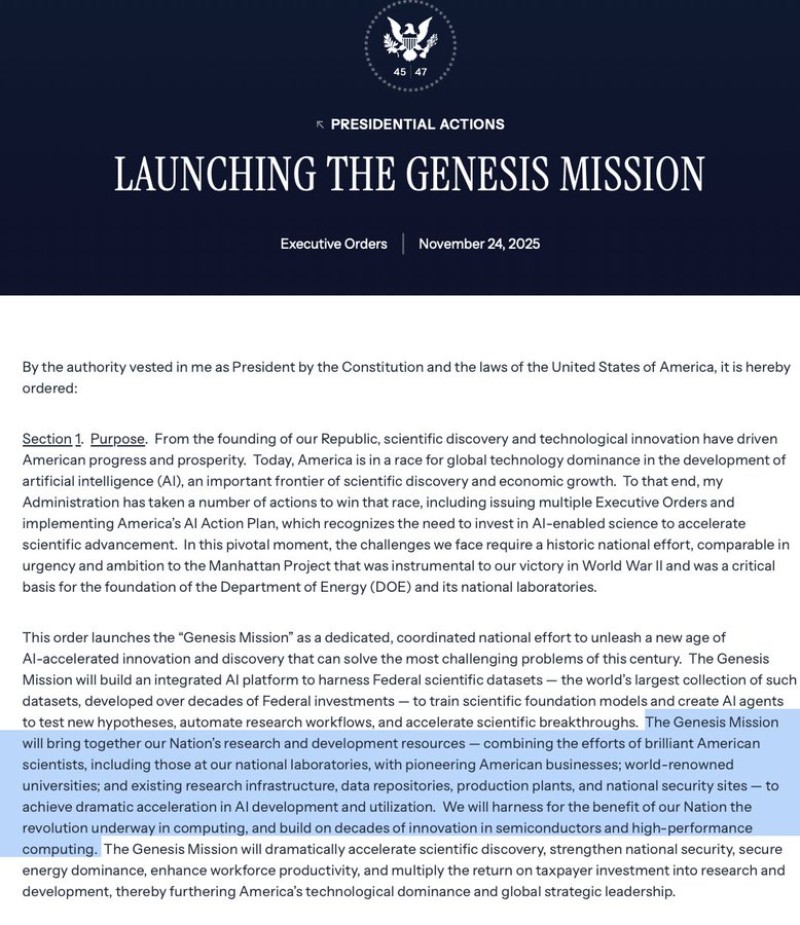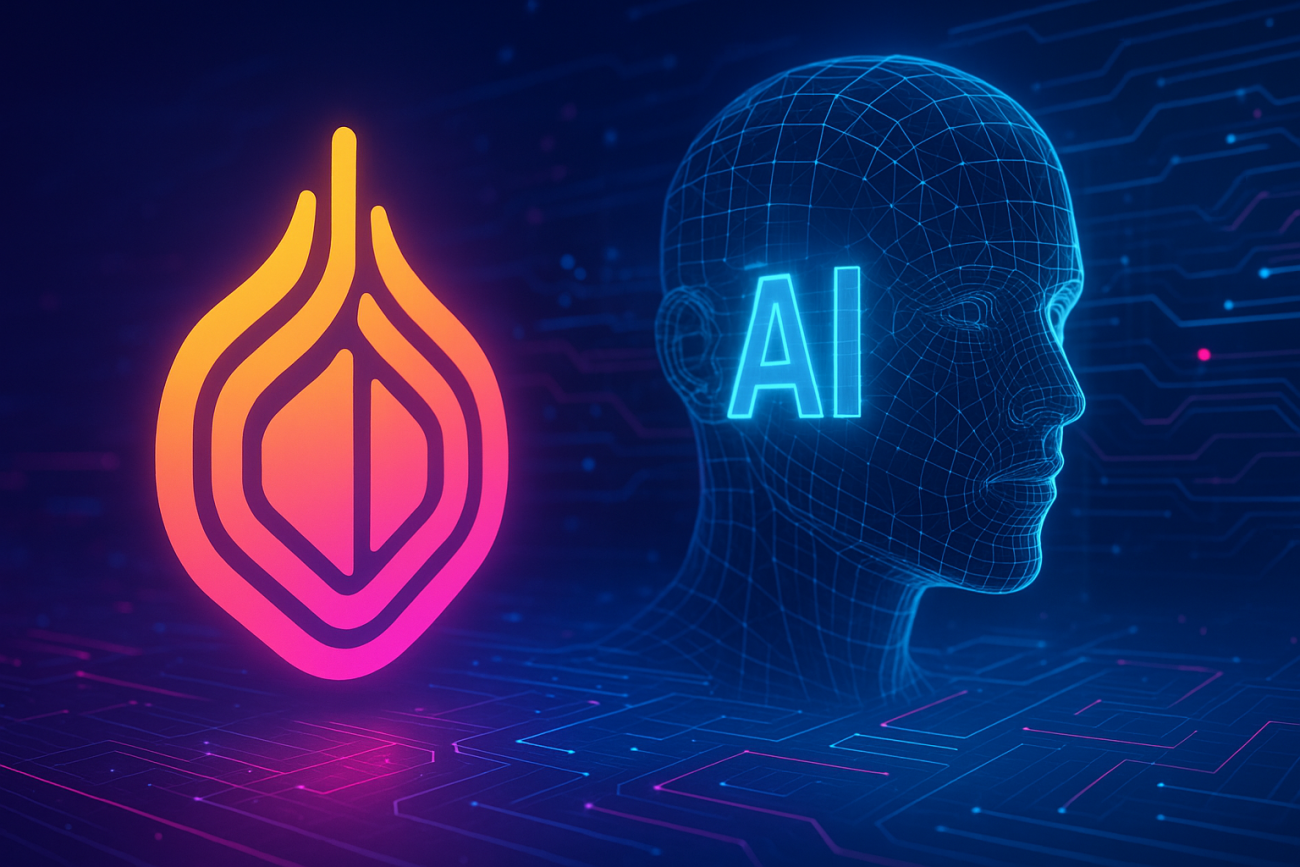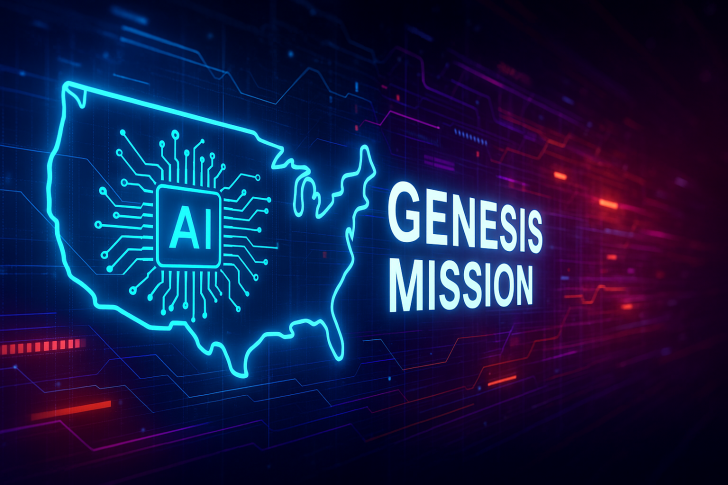⬤ The U.S. government rolled out the Genesis Mission, a nationwide push to speed up scientific progress using artificial intelligence. The initiative tasks the Department of Energy with creating a unified AI research platform that brings together federal datasets, high-performance computing, and automated lab equipment. The program targets breakthroughs in biotechnology, materials science, quantum research, energy systems, and microelectronics.

⬤ Genesis Mission will connect national laboratories, universities, private sector partners, and federal agencies into one integrated network. The platform gives AI models access to the largest collection of U.S. government scientific data while enabling automated experiments and AI-powered hypothesis testing. The administration says the program builds on existing advances in semiconductors, supercomputing, and robotics to boost research efficiency and unlock new discoveries.
⬤ The rollout follows a tight schedule with clear milestones. Federal agencies have 60 days to identify over 20 priority scientific challenges. At 90 days, the government maps all computing and lab resources. Within 120 days, teams select initial datasets, AI models, and technical standards. By 240 days, autonomous lab and robotics capabilities get evaluated. At 270 days, the Department of Energy must deliver the first working Genesis platform prototype.

⬤ The initiative marks a major shift toward centralized coordination in AI research. By accelerating discovery and strengthening America's tech foundation, Genesis Mission could define future leadership in artificial intelligence, national security, and industrial innovation. The program's success may reshape strategic sectors and influence long-term U.S. competitiveness in global technology markets.
 Saad Ullah
Saad Ullah

 Saad Ullah
Saad Ullah


